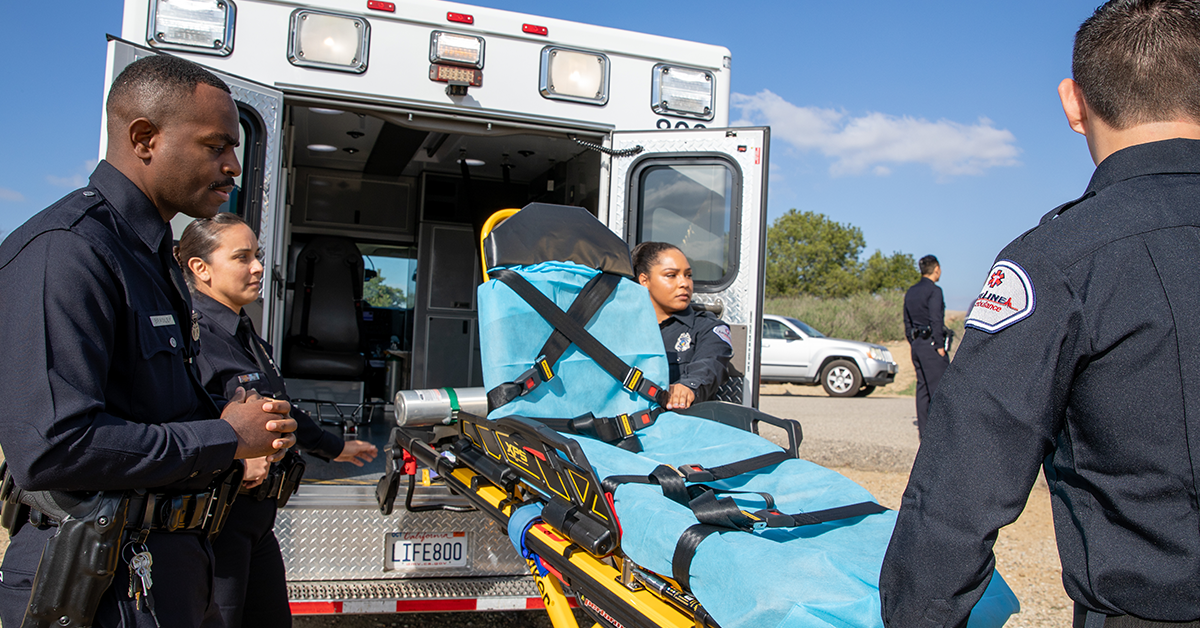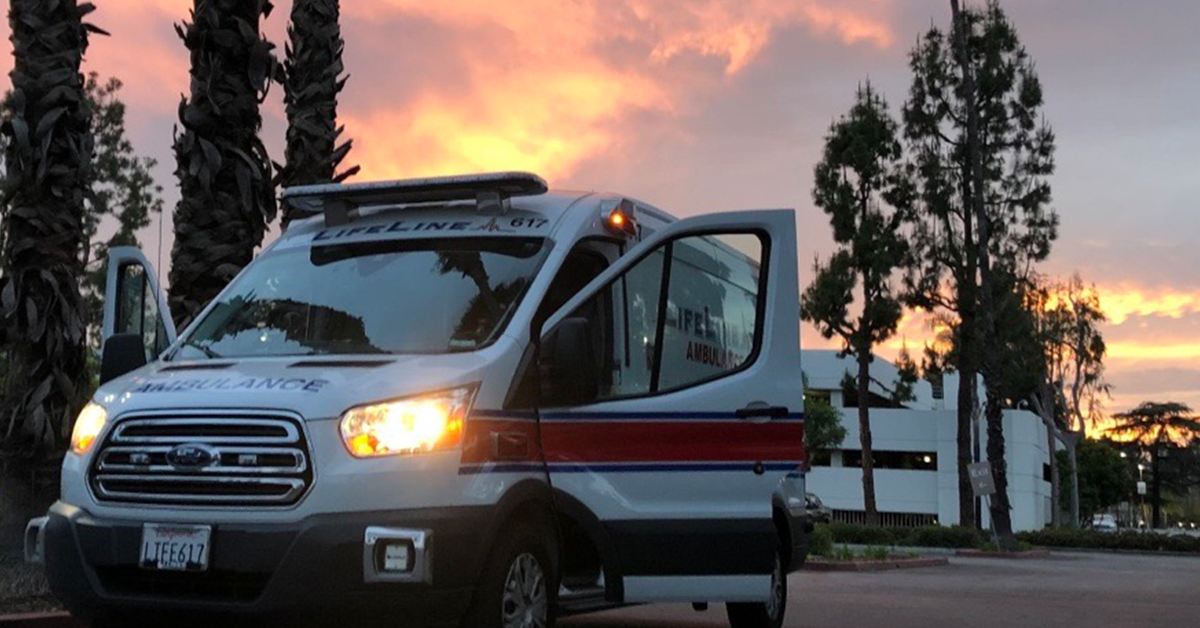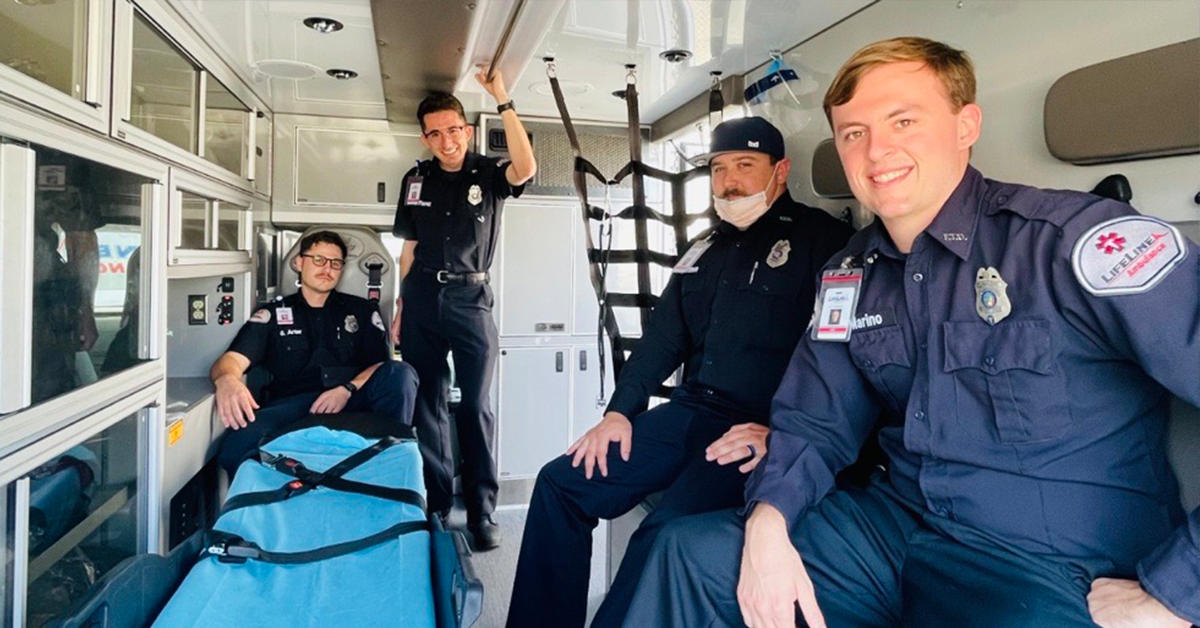A career in law enforcement requires a unique combination of skills, knowledge, and experience. For those aspiring to join the field, starting as an Emergency Medical Technician (EMT) offers a strategic advantage. The experience gained as an EMT provides invaluable training and insight that can be directly applied to a career in law enforcement. For individuals in Los Angeles and Southern California, LifeLine EMS offers a pathway to develop these skills while gaining real-world experience. This article explores why beginning your career as an EMT can be a significant advantage if you’re aiming for a future in law enforcement.
The Overlap Between EMS and Law Enforcement Skills
Both EMS and law enforcement professionals work in high-pressure environments where quick decision-making, effective communication, and teamwork are essential. The experience gained in EMS directly translates to the demands of law enforcement, making EMTs well-prepared to transition into policing or other law enforcement roles.
1. Critical Thinking and Decision-Making
In both EMS and law enforcement, professionals often find themselves in situations where they must make split-second decisions with limited information. EMTs are trained to assess emergencies quickly, prioritize tasks, and implement solutions on the spot. These critical thinking skills are crucial for law enforcement officers who must navigate complex and high-stakes scenarios regularly.
- Rapid Assessment: EMTs learn to evaluate situations rapidly and determine the best course of action, a skill that directly aligns with the decision-making required in law enforcement.
- Problem-Solving Under Pressure: Both roles demand the ability to think clearly under pressure, ensuring that decisions are made in the best interest of those involved.
2. Communication and Interpersonal Skills
Effective communication is at the heart of both EMS and law enforcement. Whether dealing with victims, suspects, or other first responders, the ability to communicate clearly and de-escalate tense situations is vital.
- Patient and Public Interaction: EMTs often deal with people in distress, providing reassurance and clear instructions. These interpersonal skills are essential in law enforcement, where officers regularly interact with the public and must build trust and maintain calm in potentially volatile situations.
- Collaborative Communication: In emergency situations, EMTs work closely with other responders, including police officers and firefighters. Learning to coordinate efforts and communicate effectively in these settings is directly applicable to law enforcement work.
3. Stress Management and Emotional Resilience
Law enforcement officers and EMTs both face high-pressure situations that can be emotionally and mentally taxing. Developing resilience and coping mechanisms is essential for long-term success in either field.
- Handling High-Stress Situations: EMTs regularly encounter emergencies where they must remain calm and focused despite chaotic environments. This ability to manage stress translates seamlessly to the demands of law enforcement, where officers often deal with life-threatening situations.
- Emotional Resilience: Exposure to difficult scenarios helps EMTs build emotional strength, which is crucial for law enforcement professionals who must maintain their composure and effectiveness in challenging conditions.
The Practical Experience of Working in EMS
Starting as an EMT provides hands-on experience that is invaluable for anyone considering a career in law enforcement. The real-world scenarios faced by EMTs offer insights into human behavior, emergency response, and crisis management—key elements in policing.
1. Understanding the Dynamics of Emergency Situations
As an EMT, you gain firsthand experience in managing emergencies, which provides a strong foundation for handling crisis situations in law enforcement.
- Crisis Management: EMTs are trained to take control in emergencies, making quick assessments and prioritizing tasks. This experience is directly transferable to law enforcement roles, where managing crises and maintaining public safety are primary responsibilities.
- Scene Safety Awareness: Both EMTs and police officers must be aware of potential hazards at an emergency scene. Learning to identify risks and take appropriate precautions is a skill that benefits both professions.
2. Exposure to Diverse Communities
Working as an EMT in a diverse region like Los Angeles and Southern California exposes you to various communities, cultural backgrounds, and social dynamics. Understanding and navigating these differences is crucial in law enforcement, where officers must engage with a wide range of individuals.
- Cultural Competency: EMTs often work with patients from diverse cultural backgrounds, enhancing their ability to communicate and provide care respectfully. This cultural awareness is an important skill for law enforcement officers who serve diverse communities.
- Building Trust in the Community: EMTs are often viewed as trusted figures within the community, which helps build rapport. Developing these relationships is also key in law enforcement, where community trust is essential for effective policing.
3. Gaining Insight into Human Behavior
An EMT’s role involves observing how people react in high-stress situations, understanding emotional responses, and offering support. These insights into human behavior are particularly valuable for law enforcement professionals.
- Behavioral Assessment: EMTs learn to quickly assess a person’s physical and emotional state, which is useful in law enforcement for recognizing signs of distress, intoxication, or potential danger.
- De-Escalation Techniques: By learning how to calm anxious or aggressive patients, EMTs develop skills that are directly applicable to de-escalating conflicts in law enforcement.
How LifeLine EMS Can Jumpstart Your Law Enforcement Career
For those looking to build a career in law enforcement, starting with LifeLine EMS offers a structured and supportive environment to develop the skills needed for success. Here’s how LifeLine EMS sets you up for a smooth transition:
Comprehensive Training and Development
LifeLine EMS provides extensive training programs that not only prepare you to excel as an EMT but also equip you with the knowledge and skills transferable to law enforcement roles.
- Emergency Medical Training: LifeLine EMS ensures that EMTs receive top-tier training in lifesaving techniques, patient care, and emergency response, all of which are relevant in policing.
- Scenario-Based Learning: Training scenarios at LifeLine EMS mirror real-world emergencies, helping you develop quick decision-making skills, situational awareness, and teamwork—all essential for law enforcement.
Exposure to Multi-Agency Collaboration
One of the key advantages of working with LifeLine EMS is the opportunity to collaborate with various public safety agencies, including law enforcement.
- Cross-Agency Cooperation: LifeLine EMS frequently works alongside police departments, fire services, and other emergency responders, offering firsthand experience in multi-agency coordination.
- Building Professional Networks: Working closely with law enforcement and other first responders allows you to build valuable professional connections that can benefit your career progression.
Supportive Work Environment
LifeLine EMS fosters a supportive and inclusive culture that prioritizes employee growth and development. Whether you’re gaining initial experience or considering a long-term career in EMS or law enforcement, LifeLine EMS provides the tools and mentorship to help you succeed.
- Mentorship Programs: New hires receive guidance from experienced EMTs, helping you build confidence and refine your skills while laying the groundwork for your future career.
- Opportunities for Career Advancement: LifeLine EMS offers clear pathways for growth, allowing you to advance into leadership roles or transition to other public safety careers, including law enforcement.
The Benefits of Starting as an EMT Before Law Enforcement
For those aiming to join law enforcement, beginning as an EMT offers a number of strategic advantages:
- Competitive Edge in Applications: The hands-on experience, crisis management skills, and real-world knowledge gained as an EMT make you a more competitive candidate for law enforcement roles.
- Comprehensive Skill Development: EMT experience provides you with a unique set of skills that are not always taught in traditional law enforcement training programs but are highly valuable in the field.
- Clear Career Pathways: Starting as an EMT allows you to explore various public safety careers and determine which path aligns best with your goals, whether that’s continuing in EMS, transitioning to law enforcement, or pursuing another specialized role.
Keep Reading
Want more? Here are some other blog posts you might be interested in.
Emergency Medical Services s a high-stress, physically demanding profession that requires dedication, quick decision-making, and resilience. While the rewards of saving lives...
Emergency Medical Services professionals are often the first point of contact during critical health crises. While technical expertise is essential in emergency...
Emergency Medical Services play a critical role in ensuring the health and safety of communities. In Southern California, including Los Angeles, the...






